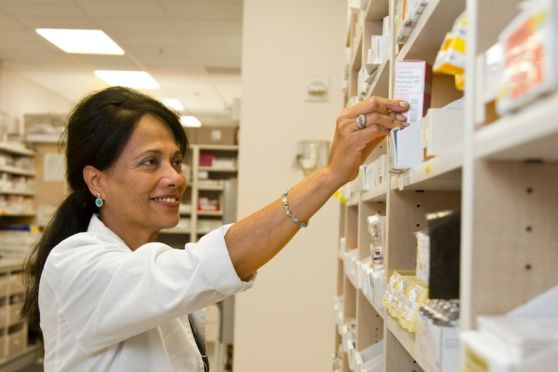What after a degree in B. Pharmacy? Check best career options with Regulatory Bodies and Government Agencies here


India is called the "pharmacy of the world" exporting pharmaceuticals to 200+ countries across the world at affordable drug prices, and leadership in the supply of generic medicines. India produces 60% of the global vaccines, serving 70% of the WHO requirements. India's pharmaceutical industry is going to reach USD 64 billion by 2024 and USD 30 billion by 2030. India has more than 3000 pharmaceutical companies and 10,500 manufacturing units. The medical devices sector is growing with a CAGR of 15% and is expected to become a USD 50 billion industry by 2025.
Indian pharmaceutical manufacturers are recognised for their affordable generic medicines at high-quality standards. The approvals from regulatory bodies like the U.S. Food and Drug Administration (FDA), the European Medicines Agency (EMA), etc. allow them to export the medicines to highly regulated countries. Thus, Indian pharmaceutical companies play a very important role in making healthcare accessible to millions around the world, especially in developing countries. To support the Pharmaceutical Industry, India needs a strong drug regulatory system. The Central Drugs Standard Control Organisation (CDSCO) and state-level drug control departments are ensuring the enforcement of the Drugs and Cosmetics Act to ensure the quality of medicines produced in India.
Healthcare Industry is one of India’s largest employers and revenue sectors worth UDS 372 billion in 2022 growing at a CAGR of 22.52%. Pharmacists are important members of the healthcare team and are contributing to the National Health Mission for providing access to equitable and affordable health services.
ALSO READ || 5 High Paying Career Options in the Pharmaceutical Industry
India also has a strong pool of scientific talent supporting pharmaceutical research through a network of well-equipped research institutes, universities, and laboratories.
Pharmacy education opens job avenues in the pharmaceutical and healthcare industry, regulatory agencies, government jobs, research, and academic institutions. There is a strong demand for pharmacy graduates and postgraduates in the government sector besides industry.
Drug Regulatory agencies like the Central Drugs Standard Control Organisation (CDSCO) and state-level drug control departments recruit pharmacy graduates as drug regulatory officers and drug inspectors. Their responsibility is to ensure compliance by pharmaceutical manufacturers, wholesalers, retailers, hospitals etc. with countries’ drug laws, reviewing and approving drug applications, conducting inspections, and monitoring drug safety. They are responsible for inspecting drug manufacturing facilities, verifying compliance with Good Manufacturing Practices (GMP), conducting quality control checks, and ensuring adherence to regulatory guidelines. They also issue licences to wholesalers and retailers of medicines and medical devices.
Pharmacy graduates have opportunities to work as members of the healthcare team in government hospitals, public health departments, medical colleges, the armed forces, railways, ESIC, and public sector companies. They can work as pharmacists, drug information specialists, pharmacovigilance officers, and as administrators.
The pharmacovigilance program of India is monitoring and assessing the safety of marketed drugs, analysing adverse drug reactions (ADRs), and implementing risk management strategies. This has opened avenues for pharmacy graduates in hospitals, pharmaceutical companies, and regulatory agencies.
Pharmaceutical manufacturing units, research laboratories, and regulatory agencies also employ pharmacy graduates as quality control and quality assurance officers. Their role is to maintain quality standards, conduct quality checks on raw materials and finished products, and ensure compliance with regulatory requirements. Public Sector Undertakings (PSUs) such as Hindustan Antibiotics Limited (HAL), Indian Drugs and Pharmaceuticals Limited (IDPL), and Karnataka Antibiotics and Pharmaceuticals Limited (KAPL), may provide employment opportunities for pharmacy graduates.
Indian Council of Medical Research (ICMR), the Council of Scientific and Industrial Research (CSIR), the Department of Biotechnology, the Department of Science and Technology, the Defense Research and Development Organisation (DRDO), and academic and research institutions offer opportunities for pharmacy graduates and postgraduates to work as research scientists. Universities and academic institutions also have opportunities to work as academicians to prepare the pharmaceutical workforce for the country.
Pharmacy graduates can work as drug analysts in government drug testing laboratories. Their responsibilities include analysing drug samples for quality, potency, purity, and adherence to pharmacopeial standards.
Clinical Research is another avenue for pharmacy graduates and postgraduates in medical hospitals working on the safety evaluation of new drugs, formulations, and medical devices.
Education in pharmaceutical sciences opens diverse opportunities in government and regulatory sectors. The growth prospects in the pharmaceutical and healthcare sectors are further enhancing the scope and prospects for graduates in this interesting field. The government of India has declared Genomics and Pharmaceuticals as the sunrise opportunities thus indicating further job growth in this sector.
About the author: Dr. Neeraj Mahindroo is the Dean of MIT World Peace University's School of Health Science and Technology, with 25+ years’ experience in teaching and research. He founded and led the School of Health Sciences at UPES, introducing an innovative curriculum and facilities. As Dean of Pharmaceutical Sciences and R&D at Shoolini University, he helped the university rank among India's top research institutions. Dr. Mahindroo has authored 40 research papers and holds five patents, with 10 patent applications, and serves on multiple advisory and editorial boards.